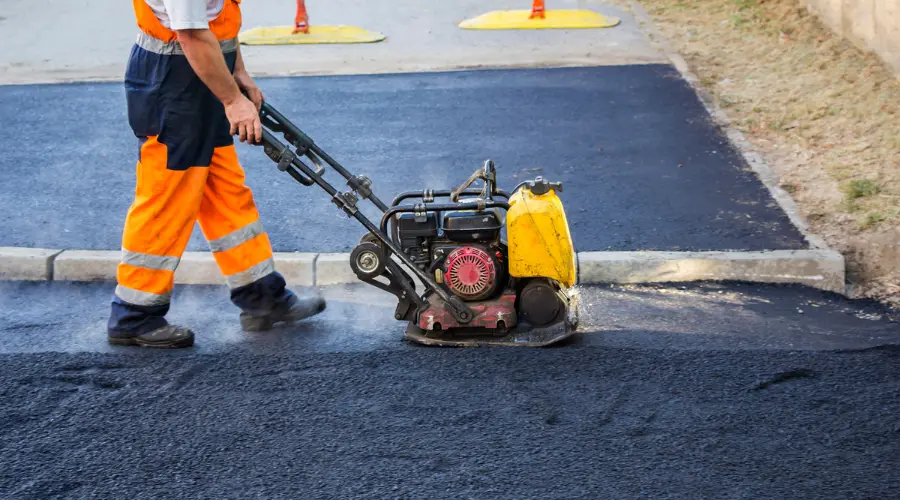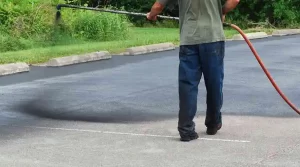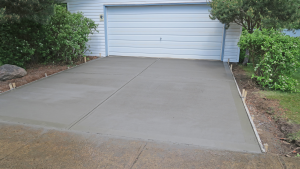Do you want to improve the curb appeal of your house and functionality by upgrading its driveway, patio, or walkway? Choosing the right residential paving contractor ensures your project’s success.This manual will help you navigate the crucial aspects of hiring a paving contractor, helping you make informed decisions that lead to stunning and durable results.
Key Takeaways:
- A residential paving contractor enhances your property’s appeal and functionality through high-quality driveway, patio, or walkway installations.
- Selecting the right contractor ensures quality workmanship, cost efficiency, and long-term durability.
- Evaluate contractors based on local experience, transparent quotes, credentials, material quality, and customer references.
- Investing in a reputable contractor adds value to your home and minimizes future maintenance issues.
What is a Paving Contractor?
A paving contractor specializes in constructing and maintaining driveways, sidewalks, patios, and parking lots. These professionals use materials like asphalt, concrete, and interlocking pavers to ensure that paved surfaces are aesthetically pleasing and durable. Whether repairing old driveways or designing new ones, paving contractors bring the expertise and tools necessary to deliver flawless results that blend seamlessly with your home’s overall look.
Why Choose the Right Paving Contractor?
Quality Workmanship
Hiring a reliable paving contractor guarantees meticulous installation. High-quality workmanship ensures your paved surfaces require minimal repairs, stay durable over time, and look professionally finished. Contractors that follow industry norms and use skilled workers produce results that stand the test of time.
Time and Cost Efficiency
An experienced paving contractor saves you time and money. They know how to manage projects, prevent delays, and reduce unnecessary expenses efficiently. With the right tools and expertise, they deliver within deadlines while staying on budget.
Enhanced Property Value
Well-maintained driveways and walkways significantly boost your home’s market value. A professionally paved surface increases your property’s visual appeal and makes it more functional and appealing to prospective purchasers and providing a superior return on investment.
How to Choose the Right Paving Contractor
Local Experience
Opt for contractors familiar with your region’s climate and soil conditions. Local experience ensures they understand how weather and terrain impact paving materials, enabling them to recommend the best solutions for long-lasting results.
Free Consultations and Transparent Quotes
Trustworthy contractors provide free consultations to assess your needs and offer accurate, detailed quotes. These quotes outline the project timeline, materials, and costs, ensuring transparency and helping you avoid unexpected expenses.
Verify Credentials
Always confirm a contractor’s credentials. Check for valid licenses, bonding, and insurance. These qualifications shield you from responsibility in the event of mishaps or property damage and demonstrate the contractor’s commitment to professionalism.
Discuss Options
A good contractor takes the time to discuss various paving options tailored to your needs. Their input helps you choose solutions that align with your vision and budget, from material recommendations to design suggestions.
High-Quality Materials
The durability of your paved surfaces depends heavily on the quality of the materials. Ensure the contractor prioritizes high-grade materials, even if it means higher upfront costs. This investment reduces long-term maintenance expenses and enhances the lifespan of your pavements.
Check References
Request references from past clients and follow up to gauge their satisfaction. Positive reviews and firsthand feedback provide valuable insights into the contractor’s reliability, professionalism, and quality of work.
The Paving Process: What to Expect
- Initial Consultation: The contractor evaluates your property, discusses your preferences, and provides an estimate.
- Planning and Design: A detailed plan includes material selection, layout, and project timeline.
- Site Preparation: The area is cleared, leveled, and prepared to ensure a strong foundation.
- Paving Installation: Asphalt, concrete, or pavers are installed precisely, followed by compacting and finishing.
- Final Inspection: The contractor reviews the work, ensuring it meets your expectations and industry standards.
Benefits of Professional Residential Paving
- Durability: Professional installation ensures your paved surfaces withstand daily wear and environmental factors.
- Curb Appeal: A well-paved driveway or walkway enhances your home’s aesthetic appeal.
- Safety: Smooth, even surfaces reduce the risk of accidents caused by cracks or uneven areas.
- Low Maintenance: Quality materials and workmanship minimize the need for frequent repairs.
Frequently Asked Questions (FAQ)
Q: How long does a residential paving project take?
A: The timeline depends on the project’s size and complexity. Most driveways take 2-5 days, while larger projects may require up to a week. Factors like weather and material curing time can also affect the schedule.
Q: What materials are best for residential paving?
A: Asphalt, concrete, and interlocking pavers are popular choices. Asphalt is cost-effective and durable, concrete offers versatility and longevity, and pavers provide a customizable aesthetic.
Q: How much does residential paving cost?
A: Costs vary based on the material, project size, and labor. Asphalt driveways cost $3-$7 per square foot, while concrete ranges from $5-$10 per square foot. Paver installations can cost $10-$20 per square foot.
Q: Can paving be done in cold weather?
A: Paving is best done in warm, dry conditions. Cold weather can affect material curing and lead to cracks. Contractors typically avoid paving in temperatures below 50°F.
Q: How do I maintain my paved surfaces?
A: Clean debris regularly, seal cracks promptly, and To protect, apply a seal coat every two to three years. against wear and weather damage.
Q: What should I look for in a paving contractor’s warranty?
A: A good warranty covers materials and workmanship for a specified period, typically 1-3 years. Read the terms carefully to understand what is included.
Conclusion
Selecting the right residential paving contractor is key to achieving a successful and stress-free project. Considering factors like experience, materials, credentials, and customer reviews, you can confidently choose a contractor who meets your needs. Investing in quality paving enhances your property’s value, functionality, and aesthetic appeal—a decision that pays off for years. For more details and professional paving services, visit Jersey City Paving.







